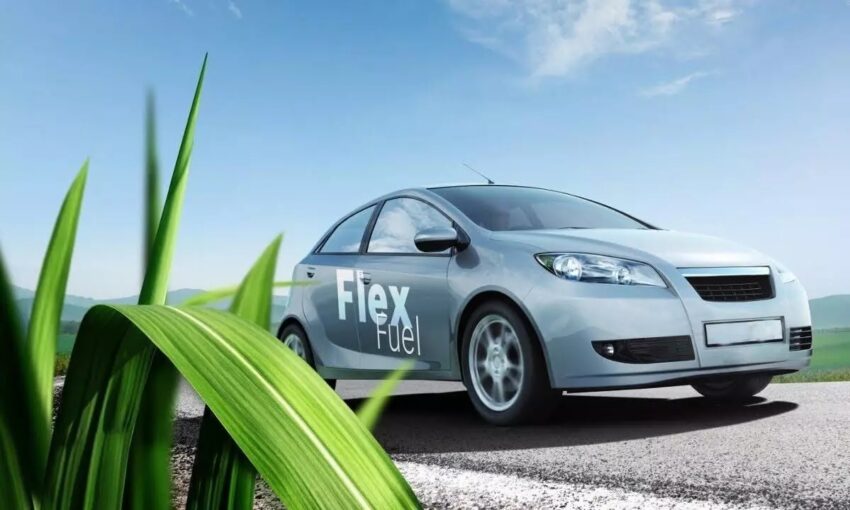Brazil is well known for its flex-fuel cars which can run on any blend of gasoline and ethanol. With over 90% of its light-duty vehicles capable of running on pure ethanol or gasoline, Brazil is a global leader in promoting flexible-fuel technology. Let’s take a deeper look into the adoption and advantages of flex-fuel cars in Brazil.
The Rise of Ethanol in Brazil
Brazil began promoting ethanol as an alternative fuel way back in 1975 during the 1970s oil crisis. Given its tropical climate and vast sugarcane fields, Brazil was well-positioned to produce ethanol from sugarcane. The ProAlcool program launched in 1975 aimed to develop an ethanol industry and provide incentives for ethanol-powered vehicles. While the initial ethanol-only cars faced issues, the real breakthrough came in the late 1990s with the arrival of Flexfuel technology.
Flexible-Fuel Technology and its Adoption
Flexible-fuel vehicles or flex-fuel cars can operate on any blend of gasoline and hydrous ethanol from 0%–100% ethanol. This provides drivers flexibility to choose fuel based on fuel prices. Brazilian automakers worked with partners to develop flex-fuel technologies and models started rolling out in the early 2000s. Consumer adoption was spurred by tax incentives for flex-fuel cars over gasoline-only models. By 2008, over 90% of new cars sold were flex-fuel capable. Today flex-fuel cars dominate Brazilian roads with over 90% share of the light vehicle fleet.
Boosting Biofuel Production
The growing flex-fuel car fleet spurred ethanol production capacity expansions. Brazil is now the second largest producer of ethanol globally after the US. Around 25% of Brazil’s sugarcane is now used for ethanol with annual production capacity exceeding 30 billion liters. Flexible infrastructure allows fuel retailers to offer gasoline, hydrous ethanol as well as varying ethanol-gasoline blends. The widespread blending helps reduce GHG emissions and cuts petroleum imports.
Consumer Economics and Fuel Choice
Brazilian flex-fuel drivers can choose fuel based on current prices displayed on pumps. When ethanol is cheaper than gasoline, most drivers opt for hydrous ethanol or high-ethanol blends for cost savings. But during times of higher ethanol prices, flex-fuel drivers switch to gasoline to save on fuel bills. This free consumer choice and fuel-price elasticity provide economic benefits while boosting biofuel demand and stimulating investments in the biofuel industry.
Technological Advancements
Over the years, Brazilian automakers have continuously improved flex-fuel technologies for better performance, efficiency, and lower vehicle production costs. Advanced materials and revised engine calibrations allow flex-fuel powertrains to perform well with any blend. Meanwhile, evolving sensing technologies help engines adapt quickly to varying blend compositions. These technological enhancements ensure reliable vehicle operations and good fuel economy across the ethanol–gasoline spectrum.
Environmental Benefits
The widespread use of ethanol blended fuels in flex-fuel vehicles delivers environmental gains. When produced from sugarcane, ethanol burns cleaner and helps cut lifecycle GHG emissions by up to 90% compared to gasoline. The mix of fossil and bio-based fuels also improves local air quality in urban areas. By displacing over 10 billion liters of imported gasoline annually, Brazil has reduced reliance on foreign oil while creating rural jobs and stimulating economic growth. Its leadership in flex-fuel technology provides a global model of how nations can go green and boost energy independence through homegrown biofuels.
Scaling Flex-Fuel Tech Globally
Encouraged by Brazil’s success, several other nations like the US, Canada and Europe have launched programs to develop and deploy flex-fuel vehicles to boost biofuel uptake. However, challenges remain around technology transfer costs, incompatible fuel infrastructure and lack of clear policy mandates. Brazil continues sharing its valuable experience and technological know-how with global automakers to help scale up flexible fuel technologies across markets. Widespread adoption could further drive down production costs and accelerate the sustainable transport transition worldwide.
With this concise overview, we hope this article provided useful insights into Brazil’s pioneering journey with flex-fuel vehicles and how it is powering the nation with homegrown ethanol biofuel. Brazil’s leadership in this field offers a replicable template for international energy and transport security through domestic biofuel resources and flex-fuel technology adoption.
*Note:
- Source: CoherentMI, Public sources, Desk research
- We have leveraged AI tools to mine information and compile it

